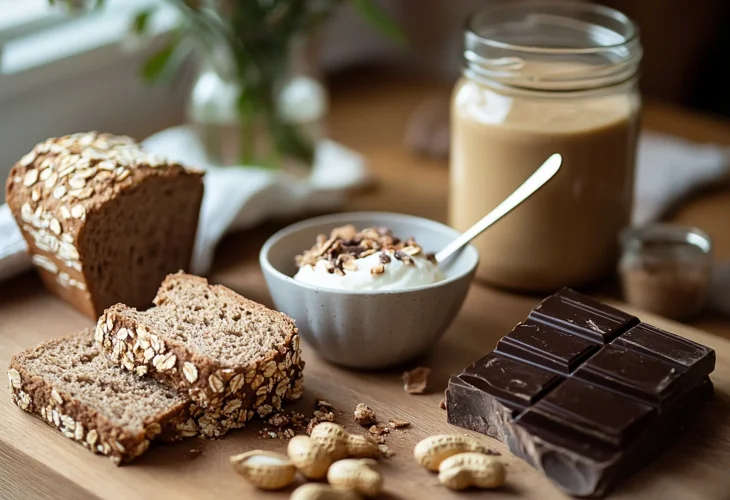Healthy Foods That Might Be Holding Back Your Weight Loss
"Healthy eating isn't just about choosing the right foods, but also paying attention to portions and overall balance," says dietitian Dr. Maya Roseman.

On her 103FM radio show, Dr. Maya Roseman debunked a major diet myth: that you can eat healthy foods without limits. "Many believe 'healthy' foods are low in calories, so they can consume them freely," she noted. "Even nutrient-rich foods can be calorie-dense, and eating them unchecked may hinder weight loss or even cause weight gain. Weight loss depends on a negative calorie balance, so it's crucial to understand that healthy foods can also have a high caloric density."
So, which healthy foods might be affecting your weight loss journey? According to her, raw tahini, for example, is a superfood rich in healthy fats, calcium, iron, protein, and magnesium, yet it's very calorie-dense — every teaspoon contains about 90-100 calories. Many people add tahini to salads or as a spread without monitoring the quantity. Dr. Roseman recommends using a measuring spoon and keeping to 1-2 teaspoons a day, as part of your total caloric balance. Granola, also considered a health food, is high in carbohydrates and fats. Even if it's natural and without added sugars, it can reach 400-500 calories per 100 grams. Roseman advises not to consume more than 2 tablespoons (approximately 30 grams) per meal, and to choose natural granola free from added sugar.
Another example is sun-dried tomato spread. Sun-dried tomatoes are rich in lycopene, but during the drying process, their caloric concentration increases. Commercial spreads often add a lot of oil, leading to high caloric density — even a single teaspoon can contain about 80-100 calories. It's recommended to choose versions without added oils and use small amounts. Even 90% dark chocolate contains antioxidants but is not low in calories — 100 grams contain 550-600 calories. Many treat it as a completely permissible indulgence and eat it in large quantities. The recommendation is to limit yourself to one or two squares a day (10-20 grams). Natural peanut butter is another example—it's high in protein and healthy fats, but also in calories—one heaping teaspoon contains about 100-120 calories, and it's easy to consume excess without noticing. The advice is to limit to 1-2 tablespoons per day at most.
"Healthy eating isn't just about choosing the right foods, but also paying attention to portions and the overall balance," concluded Dr. Roseman. "Tahini, peanut butter, dark chocolate, and granola are rich in positive nutritional values, but in excessive consumption, they can prevent weight loss. The solution is not to avoid them entirely but to consume them mindfully and with control."

